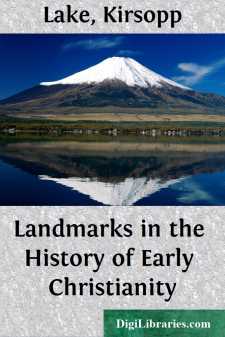Categories
- Antiques & Collectibles 13
- Architecture 36
- Art 48
- Bibles 22
- Biography & Autobiography 816
- Body, Mind & Spirit 145
- Business & Economics 28
- Children's Books 18
- Children's Fiction 14
- Computers 4
- Cooking 94
- Crafts & Hobbies 4
- Drama 346
- Education 58
- Family & Relationships 59
- Fiction 11834
- Foreign Language Study 3
- Games 19
- Gardening 17
- Health & Fitness 34
- History 1378
- House & Home 1
- Humor 147
- Juvenile Fiction 1873
- Juvenile Nonfiction 202
- Language Arts & Disciplines 89
- Law 16
- Literary Collections 686
- Literary Criticism 179
- Mathematics 13
- Medical 41
- Music 40
- Nature 179
- Non-Classifiable 1768
- Performing Arts 7
- Periodicals 1453
- Philosophy 66
- Photography 2
- Poetry 897
- Political Science 203
- Psychology 45
- Reference 154
- Religion 516
- Science 126
- Self-Help 86
- Social Science 82
- Sports & Recreation 34
- Study Aids 3
- Technology & Engineering 59
- Transportation 23
- Travel 463
- True Crime 29
Our website is made possible by displaying online advertisements to our visitors.
Please consider supporting us by disabling your ad blocker.
Landmarks in the History of Early Christianity
by: Kirsopp Lake
Description:
Excerpt
GALILEE
At first sight the historian of religions appears to be faced by a number of clearly distinguished entities, to each of which he feels justified in giving the name of a separate religion; but on further consideration it becomes obvious that each one of these entities has been in a condition of flux throughout its history. Each began as a combination or synthesis of older forms of thought with comparatively little new in its composition; each ended by disintegrating into many elements, of which the worst disappeared, while the best were taken up into new life in some new religion. The movement was more marked at some times than at others, and the differentiation of the various religions depends chiefly on the recognition of these moments of more rapid change. But the process never really stopped; from beginning to end new elements were constantly absorbed and old elements dropped. For religion lives through the death of religions.
Nothing illustrates this so well as the history of Christianity, for no religion is so well-known. The facts are plainly visible, and would be plainly seen by all, were it not for the general tendency of ecclesiastical scholarship to consult the records of the past only to find the reflection of its own features.
The general condition of religion in the Roman Empire at the beginning of the Christian era was one of far advanced disintegration and rapid synthesis. In every district there could be found the remains of old local religions, which retained the loyalty of the conservative, but no longer aroused any vital response in the emotions of the multitudes or in the interest of the educated. At that time, and for many generations afterward, the Roman landowners, to take one example, maintained the ceremonies and customs of an agricultural animism which for their ancestors had been a living religion, but for them had become aesthetic, conventional, and superstitious,—an appendage to life, not its driving force. Those who wish can read a description of it, written with a sympathy possible only for one who felt the analogy of his own experience, in the pages of Marius the Epicurean, in which Walter Pater, by a wonderful tour de force, wove an exact and scholarly knowledge of the original documents into such a web of artistic English that the deep learning of the book cannot be appreciated except by those who have some small share in it themselves.
Over these local religions had been thrown throughout the Empire the covering fabric of Greek mythology. It had lost much of its power; it was no longer sincerely believed; it was in every respect decadent; but it still played its part in unifying, and to some extent civilising, the diverse races of the Empire. But more important than the Greek mythology was the Greek philosophy, which was indeed in many ways its antidote. If the mythology of Greece appeared to sanction an infinite number of gods and goddesses, her philosophers taught with equal persuasiveness that the divine reality is one, though its forms be many....


